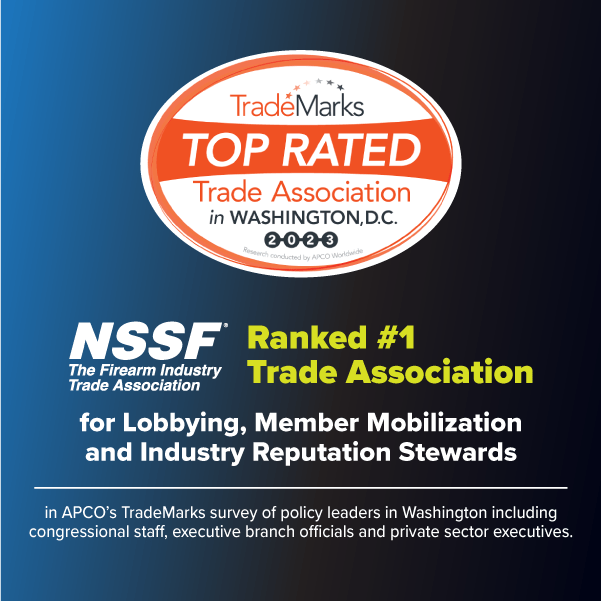 Back to News
Back to News
February 15, 2024
Congressman Asks ‘I Buy Ammo. Am I On a List Somehow?
Congress wants to know why the Biden administration’s Treasury Department was violating Constitutional rights against illegal search and seizure to spy on Americans’ firearm and ammunition purchases and why they are maintaining a list of gun owners in violation of federal law.
The U.S. House of Representatives Financial Services Committee grilled the Treasury’s Undersecretary for Terrorism and Financial Intelligence Brian Nelson and Director of the Financial Crimes Enforcement Network (FinCEN) Director Andrea Gacki in a hearing titled “Oversight of the Financial Crimes Enforcement Network (FinCEN) and the Office of Terrorism and Financial Intelligence (TFI).” Several Members of Congress were pointed in their questions regarding admissions by the Treasury Department that it did, in fact, spy on law-abiding citizens’ private financial transactions and internet search terms without their knowledge or suspicion of illegal activity.
In other words, Treasury admitted they violated the Fourth Amendment rights against illegal search and seizure when they solicited transaction and internet search histories from corporate banks, which willingly complied. Bank of America has been served a subpoena over private transaction histories, including firearm and ammunition purchases, without a warrant.
Such an admission by the Treasury Department and corporate banks that willingly assisted is concerning that the federal government is violating Constitutional rights to put Americans on watchlists for exercising their rights.
Congress Wants to Know
U.S. Rep. Bill Huizenga (R-Mich.) explained that the Treasury Department’s admission it illegally spied on private accounts smacks of the ill-fated and illegal Operation Choke Point, the Obama administration campaign to use the Department of Justice (DOJ) and the Federal Deposit Insurance Corporation (FDIC) to discriminate against firearm-related business by starving them of financial services.
Only now, that effort is targeting the private financial transactions of Americans.
“That doesn’t matter what the what the name is,” Rep. Huizenga said. “It’s the action of that I’m very concerned about FinCEN, providing financial institutions with quote suggested search terms and merchant category codes that would be used to identify transactions.”
Rep. Huizenga directly addressed FinCEN’s spying by surveilling Americans who purchase firearms and ammunition or shopped at Cabela’s or Dick’s Sporting Goods.
“I shop at Cabela’s. I buy ammo. Am I on a list somehow?” Rep. Huizenga asked. “That… that’s what a lot of people, including myself, are asking when we’ve heard this. Your agency was created to protect Americans and our national security, not to spy on them.”
Director Gacki responded only that her department would schedule a briefing with Rep. Huizenga’s staff.
Guns and Bibles
Rep. Ann Wagner (R-Mo.) pressed further, wanting to know where the Treasury Department’s FinCEN drew the legal authority to justify a search of individual bank customer records. Director Gacki tried to say FinCEN has the authority from the Bank Secrecy Act, but Rep. Wagner said that law doesn’t apply.
“But that ma’am it is for terrorism and money laundering, not legal purchases made by a United States citizen,” Rep. Wagner said. “Absent a warrant, Ms. Gacki, my constituents… should not have their legal purchases …. becoming the knowledge of federal regulators like FinCEN, or any warrants issued by a judge, any subpoenas issued by a court or any legal opinion provided by your general counsel about legal requirements under which banks would be required to provide this type of information, ma’am.”
Director Gacki parried by saying FinCEN’s searches began under the Trump administration but didn’t say that it was a search that President Donald Trump himself knew of. She explained that those key term searches, including “Trump” or “MAGA” or purchase histories of firearms, ammunition and even Bibles, continued with the Biden administration. Just one week ago, Treasury Secretary Yellen refused to tell Congress that FinCEN did, in fact, spy on Americans’ private financial transactions and key search terms.
“Bible? Gun violence? Those are our gun purchases,” Rep. Wager asked of the breadth of the FinCEN’s surveillance. “You know, I’m trying to understand here, these are legal purchases. These have nothing to do with terrorism, or money laundering or anything that would come under data, privacy and such. You know, were there warrants issued by a judge or a court that required them to provide this information?”
Director Gacki didn’t answer, instead referring Rep. Wagner to the DOJ. Rep. Wagner said the American public deserves transparency on this issue.
“And I want FinCEN and Treasury to come forward before this committee, before our members, before the people of the United States of America and explain how it is that that the federal government and Treasury and arms of treasury are asking for information from banks about legal purchases that may be politically-triggered, that may be triggered by the fact that they’re purchasing a firearm, or religiously-triggered by the purchase of a Bible.” she said. “I am not happy with any of the answers that I’ve received. Both of the Treasury Secretary, quite frankly, from you.”
You may also be interested in:
Treasury Secretary’s Evasive Answers Remind of Need for Second Amendment Privacy
Categories: BP Item, Featured, Government Relations, Top Stories









